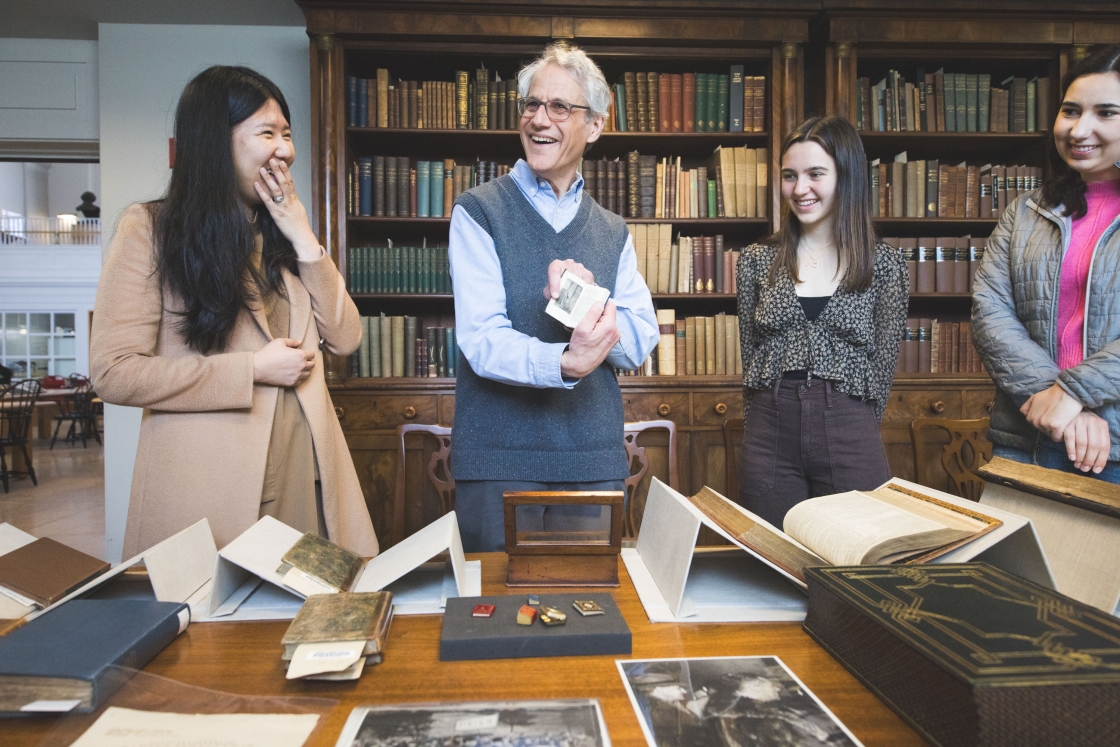
Visit the Strategic Planning website for the most current “Leading Voices in Higher Education” information and schedule.
Cultural historian Robert Darnton and research scholar and writer Ben Wildavsky will speak next week as part of the “Leading Voices in Higher Education” lecture series.

Robert Darnton
The February 27 lecture by Darnton, Harvard University librarian and professor, is also the inaugural Donoho Colloquium and is sponsored by The Neukom Institute for Computational Science and the Friends of the Dartmouth College Library. The talk, “The Digital Public Library of America and the Digital Future,” begins at 5 p.m., in Moore Hall’s Filene Auditorium.
The colloquium is the first lecture sponsored by The Donoho Family Undergraduate Computational Science Colloquia Fund, established in 2010 by David and Miriam Donoho in honor of their son, Daniel Donoho ’06. The fund will support three lectures a year.
Darnton has written and edited many books, including The Great Cat Massacre and Other Episodes in French Cultural History, perhaps his most popular work, which has been translated into 17 languages; and his latest, Poetry and the Police: Communication Networks in Eighteenth-Century Paris.

Ben Wildavsky
On February 29 Ben Wildavsky, author of The Great Brain Race: How Global Universities Are Reshaping the World, will discuss perspectives on recent developments in global higher education, including intense competition and unprecedented academic mobility, the growth of branch campuses, the quest to create world-class research universities, and the rise of global college rankings. He will also discuss how Dartmouth can facilitate and promote “free trade in minds.” His talk begins at 4 p.m., in Rockefeller 3.
Wildavsky is a senior scholar in research and policy at the Kauffman Foundation and previously served as education editor of U.S. News & World Report, where he was editor of “America’s Best Colleges” and “America’s Best Graduate Schools.” He has also worked as a magazine and newspaper writer, and currently blogs for The Chronicle of Higher Education.
About “Leading Voices in Higher Education”
The “Leading Voices” speaker series is part of Dartmouth’s strategic planning process, which began last summer.
Provost Carol Folt says, “We are drawing the best thinkers and innovators in higher education today. Ideas for the series are coming from our strategic planning working group members, who suggested speakers who will challenge and inspire our community as we work together to chart a course for Dartmouth’s future.”
The next speaker in “Leading Voices in Higher Education,” on March 27, is social psychologist Roy Baumeister, a professor at Florida State University. Baumeister is known for pioneering work on the self, social rejection, sexuality, self-esteem, aggression, consciousness, and free will. He has written, co-written, or edited almost 30 books, the most recent of which is Willpower: Rediscovering the Greatest Human Strength.
Future speakers include longtime Princeton Dean Nancy Weiss Malkiel; sociologist and Columbia Provost Emeritus Jonathan R. Cole; and Freeman A. Hrabowski III, president of the University of Maryland, Baltimore County.
The Dartmouth community has already heard from renowned humanities scholar Cathy Davidson, author of Now You See It: How the Brain Science of Attention Will Transform the Way We Live, Work, and Learn, and Pulitzer Prize-winning author Louis Menand, a writer at The New Yorker and Harvard professor who writes about the role of higher education in society.
To begin the series, Dartmouth Professor Vijay Govindarajan, the Earl C. Daum 1924 Professor of International Business at the Tuck School of Business, presented a strategic planning talk in which he asked the Dartmouth community to consider how education is changing.
“If we want to continue to be a leader, the question we need to ask is, ‘How is the world of higher education likely to change?’ If the 20th century is an American century, I say the 21st century is the global century,” said Govindarajan. “What are the implications of that for higher education?”
